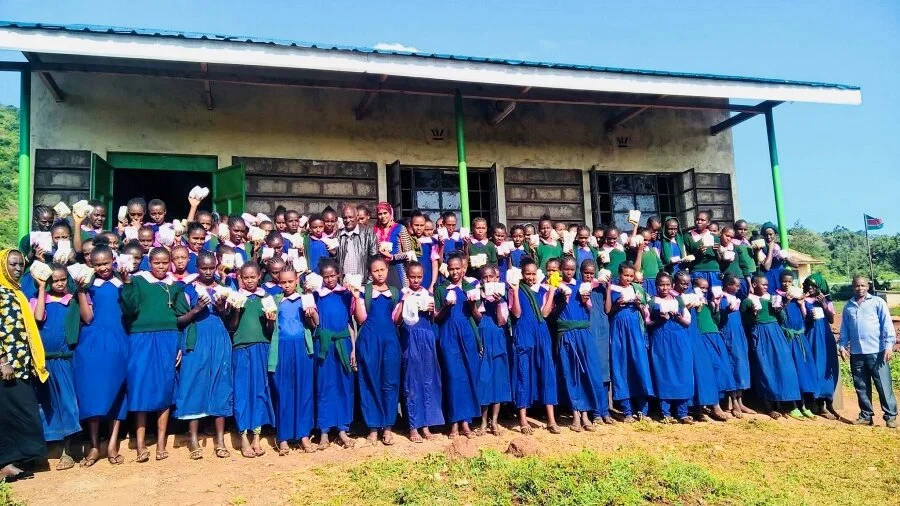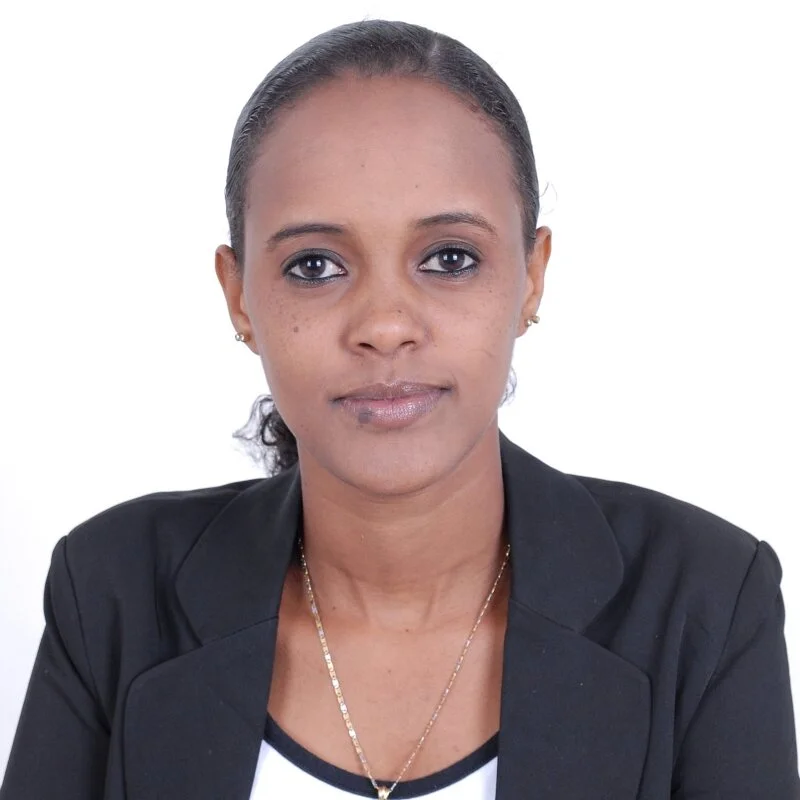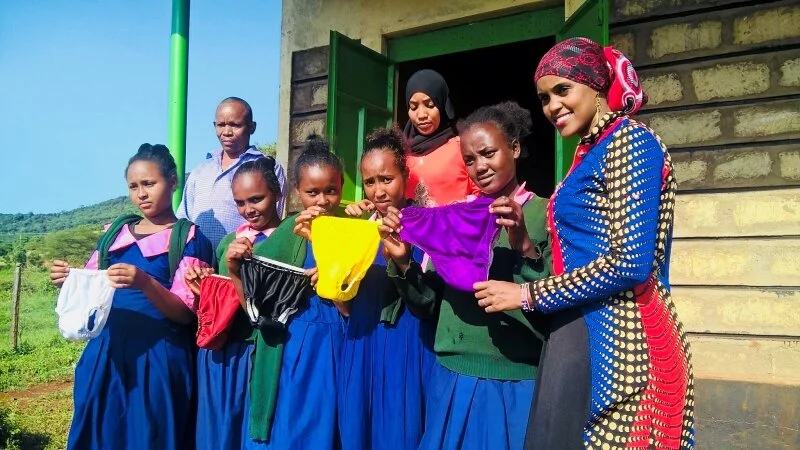THE LEADERS OF TOMORROW
ATHENA & TELEMACHUS ALUMNI
QABALE DUBA
Qabale is the founder of Qabale Duba Foundation (QDF) www.qabale.org, a community-based organization that is empowering pastoralist girls and women in Marsabit County. She is a graduate nurse from Kenya Methodist University and currently pursuing masters of science in Field Epidemiology at Moi University. QDF champions against Harmful cultural practices like female genital mutilation & early marriages.
"As Far as You Believe in Yourself Nothing Is Impossible"
Q: Tell us a few things about your country, and also your life's story!
I am a Nurse, epidemiologist, model, a wife and a mother. I was born in a polygamous family of 3 mothers with 19 children. My mum is the first wife with 9 children and I am the last born. I come from a nomadic pastoralist community where girl child education is not valued. I was lucky to be the only educated girl in my entire family, the fact of being a last born really helped me.
I am born and brought up in a small village of Turbi in Marsabit County, Northern Kenya. I schooled both primary and secondary in my county and later joined the university in the city. My country Kenya is in Eastern Africa, we have a population of about 50 million people as per the 2019 census. It is a beautiful country with over 46 different language speaking ethnic communities.
Northern Kenya region is a marginalized area due to its vast nature and arid climate. The area is also known for continuous tribal conflicts among the communities living in the region. Therefore many community-based organizations like mine www.qabale.org are champion for peaceful coexistence among the people. On the other hand, northern Kenya has got so many hidden treasures that the people who explore it really enjoy. My county is the home of the only desert lake in the world and the only true desert in east and central Africa. I did a video about the beauty of my County when I was the Miss Tourism Kenya 2013/2014. https://www.youtube.com/watch?v=d72oMvNPBZE&t=45s .
Q: What is your view of the Coronavirus crisis and the world as it is today? How do you define the concept of a better world especially given the hard lessons we have taken from this unprecedented crisis?
The coronavirus crisis has brought the world to a standstill, it is a pandemic that has been felt globally. To my view, the coronavirus is teaching us a lesson that no matter where we are economically we are all affected in equal measures. For the first time in history, the whole world is fighting the same battle and it has made humanity to value their health each and every day.
A better world is where we all be responsible for our own health and the health of people around us. This unexpected crisis is teaching us good lessons of always be prepared. We should all be small scale farmers for essential things such as vegetables within our homes. The concept of a better world is also where we help the needy in the community during the time of crisis.
Q: What are some of the key challenges in your society currently and how do you think CoVid-19 will affect your country?
One of the key challenges in my society is the shortage of food. Most families are usually relieved that their children get food in schools, but with the Covid-19 crisis where all schools are closed the parents are really pressed. On the other hand, to fight this pandemic cleanliness of the body is needed especially washing of the hands. In my society where there is always a shortage of water, it is getting harder to make the hand washing practices effective.
The CoVid-19 crisis is already derailing my country's economy and we fear that it will be affected further if the pandemic continues.
Q: As a young individual what are a few of the hurdles that you had to overcome up until today?
I am an Epidemiologist, therefore, we are the front line health care workers doing the mass testing and also doing the contact tracing activities. As an individual, I am facing a hard time because I have diabetes, therefore at high risk of getting the disease. I also have a young family but due to the nature of my work, I am mostly away from them.
Q: Why is the role of a mentor important for you?
I am the founder of a community-based organization www.qabale.org that is empowering pastoralist girls and women through education. I manage a few employees and volunteers in the running of my organization. The role of a mentor is very important to me because I will be having someone to turn to and ask questions in case I need any clarifications.
As the first graduate girl from my village, I also decided to in-cooperate mentorship/career talks as one of my key programs. Therefore as I mentor others I need mentorship to pass down the knowledge to other mentees below me.
Q: Do you have a lesson that life has taught you and you would like to share?
Life has taught me that as far as I believe in myself nothing is impossible for me to achieve my dreams.
Q: Name a project, a foundation or a person in your country that you think is doing great work in helping improve other people's lives!
Bilian Foundation in Mathare slum
Akili Dada Foundation
Q: What are some of the challenges that women in your country face and what efforts are made towards gender equality?
Gender inequalities are rampant especially in the employment field. Women are considered less competent when job recruitment is done and in politics no matter their academic qualifications.
Many women-led organizations and other human rights organizations are fighting for gender equality and they are making commendable steps.
Q: Share with us a phrase, a poem or a story that you love or you find interesting!
The secret of getting ahead is getting started, therefore start where you are, use what you have and do what you can.
Q: Share with us a project that you would like to make happen for your country or a cause that you are passionate about?
I am so passionate about education because despite coming from a very humble background and a remote village I have become a global icon because of education. Therefore the project that I want for my country is upscale of a community literacy program that I started through a school in the pastoralist communities of northern Kenya.
The literacy program will not only empower the communities at large but also enhance gender equality by ensuring that girls are given equal educational opportunities as boys.





